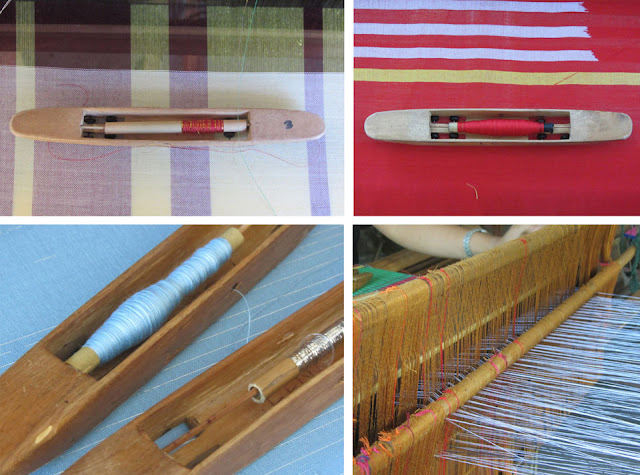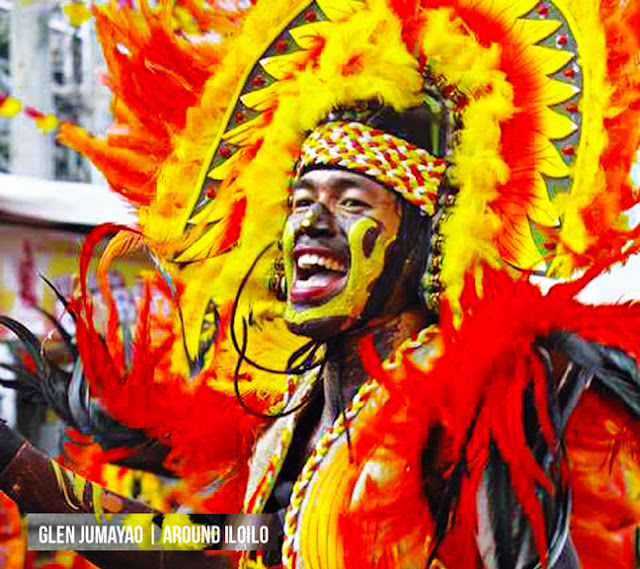Child labor and other forms of child abuse
Jomari, a child from Estancia, dives along with his father in order to operate the compressors used in nylon shells propagation. This is deep sea fishing and considered as the worst form of child labor. Soledad, 9, of Estancia, lives with her aunt and the latter asks her to help out in the house. Teaching children to help in household chores is okay, but to treat them as laborers rather than like a family member and if this already deprives the child the ability to study well, it's no longer acceptable. Soledad always absents herself from school because she has to work in her aunt's house. Jeff always sleeps in school and when he's not in school, he joins his father in collecting shrimps and crabs. There's no time for learning anymore. Bethany, 12, said that she works in a sugarcane plantation in Duenas every weekend. Sometimes, she faints from dehydration. Most of the time, she injures herself.
Children have the right to education and play, as part of their childhood. But due to poverty, some do not have the luxury to learn, play and most of all, gain the respect and care that they are supposed to have. Added to that, when children are in work surroundings, they are endangering themselves as well. This holds true for those who engage in deep sea fishing like Jomari, sugarcare plantations like Bethany and scavenging. This is the reason why child labor is one of the forms of child abuse that we should watch out for.
The government has enacted several laws to protect our children. Republic Act (RA) 7610 is the most significant law for the protection of children. This act calls for stronger deterrence against child abuse, neglect, cruelty, exploitation and discrimination, and other conditions prejudicial to child development.
Apart from child labor, the following are forms of child abuse:
Physical Abuse. Any act that results to non-accidental or unreasonable physical injury to a child. This includes lacerations, fractures, burns, strangulation, human bites and similar acts. This is the reason why parents or other adults should refrain from slapping or even pinching the child as a form of discipline. There are other forms of disciplining the child and that is through kindness and a clear explanation why a certain act is wrong.
Psychological or emotional abuse. Any harm to a child's emotional or intellectual well-being. Some of the common acts are cursing, belittling and rejecting. Calling a “child gago/gaga, mangu, bwisit” and other hurtful remarks won't do the child any good. Chances are, the child will grow up as such because, at a young age, he is already made to think that he or she is such.
Neglect. Any unreasonable deprivation of a child's basic needs such as food, clothing, shelter, education, medical, general care, and supervision by parents, guardians or custodians.
Sexual abuse. Refers to any employment, use, persuasion, inducement, enticement or coercion of a child to engage in sex or assist another person to engage in sexual intercourse or lascivious conduct. It includes molestation, prostitution or incest with children.
Sexual exploitation. Refers to hiring, employment, persuasion, inducement or coercion of a child to perform in obscene exhibitions and indecent shows or to pose or act as a model in obscene publication or pornographic materials.
Child prostitution. Refers to the act done to children, who, for money, profit or any other consideration or due to the coercion or influence of any adult, syndicate or group, indulge in sexual intercourse or lascivious conduct.
Child trafficking. The trading and dealing with children including the act of buying and selling a child for money, or for any other consideration or barter (RA 9208 or Anti-Trafficking in Persons Act).
Child in conflict with the law. A child who is alleged, as, accused of, or adjudged as having committed an offense under Philippine laws (RA 9344 or Juvenile Justice and Welfare Act).
Spiritual Abuse. The misuse of power, authority or trust by an person in a position of spiritual power or authority through controlling, coercing, manipulating or dominating a child's development.
A child refers to any person below 18 years of age or those over 18 but are unable to fully take care of themselves or protect themselves from abuse, neglect, cruelty, exploitation or discrimination because of a physical or mental disability or condition.
A child abuser is a criminal. Report child abuse to the Department of Social and Welfare Development at 336-5428.
(Read The News Today www.thenewstoday.info)
Children have the right to education and play, as part of their childhood. But due to poverty, some do not have the luxury to learn, play and most of all, gain the respect and care that they are supposed to have. Added to that, when children are in work surroundings, they are endangering themselves as well. This holds true for those who engage in deep sea fishing like Jomari, sugarcare plantations like Bethany and scavenging. This is the reason why child labor is one of the forms of child abuse that we should watch out for.
The government has enacted several laws to protect our children. Republic Act (RA) 7610 is the most significant law for the protection of children. This act calls for stronger deterrence against child abuse, neglect, cruelty, exploitation and discrimination, and other conditions prejudicial to child development.
Apart from child labor, the following are forms of child abuse:
Physical Abuse. Any act that results to non-accidental or unreasonable physical injury to a child. This includes lacerations, fractures, burns, strangulation, human bites and similar acts. This is the reason why parents or other adults should refrain from slapping or even pinching the child as a form of discipline. There are other forms of disciplining the child and that is through kindness and a clear explanation why a certain act is wrong.
Psychological or emotional abuse. Any harm to a child's emotional or intellectual well-being. Some of the common acts are cursing, belittling and rejecting. Calling a “child gago/gaga, mangu, bwisit” and other hurtful remarks won't do the child any good. Chances are, the child will grow up as such because, at a young age, he is already made to think that he or she is such.
Neglect. Any unreasonable deprivation of a child's basic needs such as food, clothing, shelter, education, medical, general care, and supervision by parents, guardians or custodians.
Sexual abuse. Refers to any employment, use, persuasion, inducement, enticement or coercion of a child to engage in sex or assist another person to engage in sexual intercourse or lascivious conduct. It includes molestation, prostitution or incest with children.
Sexual exploitation. Refers to hiring, employment, persuasion, inducement or coercion of a child to perform in obscene exhibitions and indecent shows or to pose or act as a model in obscene publication or pornographic materials.
Child prostitution. Refers to the act done to children, who, for money, profit or any other consideration or due to the coercion or influence of any adult, syndicate or group, indulge in sexual intercourse or lascivious conduct.
Child trafficking. The trading and dealing with children including the act of buying and selling a child for money, or for any other consideration or barter (RA 9208 or Anti-Trafficking in Persons Act).
Child in conflict with the law. A child who is alleged, as, accused of, or adjudged as having committed an offense under Philippine laws (RA 9344 or Juvenile Justice and Welfare Act).
Spiritual Abuse. The misuse of power, authority or trust by an person in a position of spiritual power or authority through controlling, coercing, manipulating or dominating a child's development.
A child refers to any person below 18 years of age or those over 18 but are unable to fully take care of themselves or protect themselves from abuse, neglect, cruelty, exploitation or discrimination because of a physical or mental disability or condition.
A child abuser is a criminal. Report child abuse to the Department of Social and Welfare Development at 336-5428.
(Read The News Today www.thenewstoday.info)




